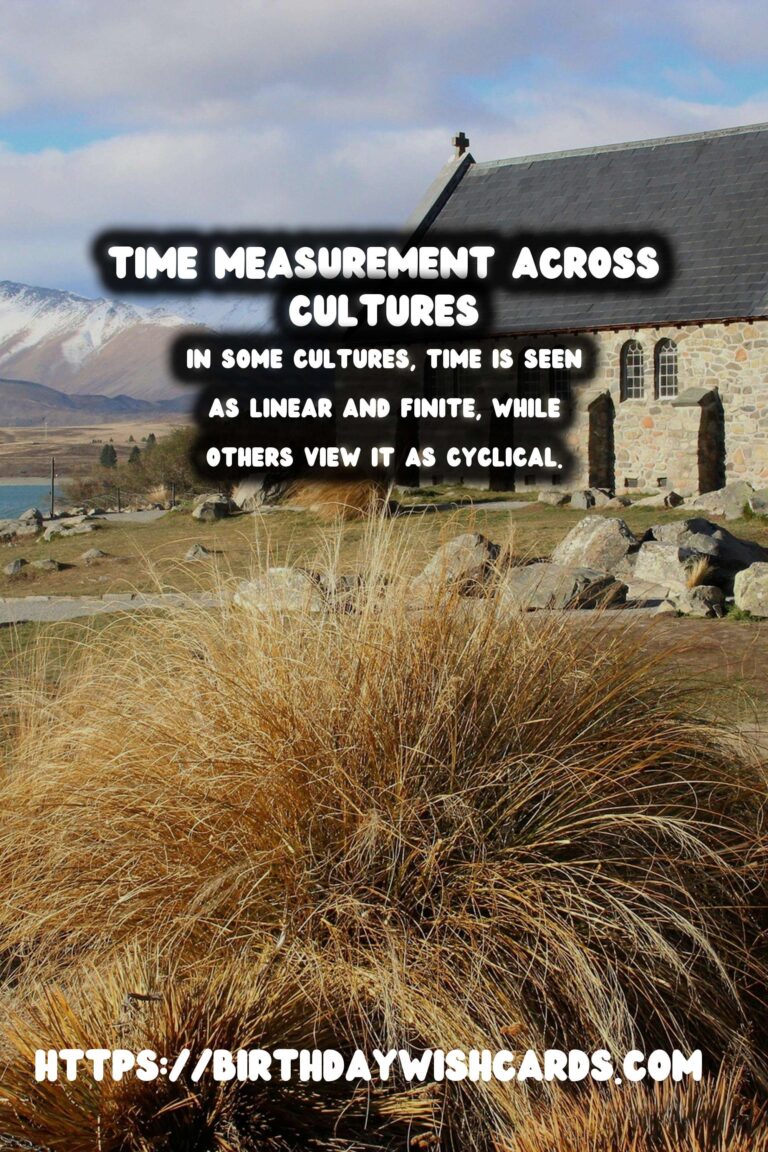
Time is a concept that fascinates cultures around the globe. The way it has been measured and interpreted varies greatly, reflecting a diversity in thought, technological advancements, and philosophical perspectives. The history of time measurement provides insights into human ambition to understand its passage and how this quest has shaped civilizations.
Origins of Time Measurement
In ancient times, people observed the movement of celestial bodies to measure time, notably the sun and moon. The Sumerians, living in Mesopotamia around 2000 BCE, are credited with using sundials to divide the day into simple units. These early timekeepers laid the foundation for more complex methods of time measurement.
The Egyptians: Innovators of Time
The ancient Egyptians developed the water clock, believed to be one of the earliest time-measuring inventions around 1500 BCE. The water clock, or clepsydra, used the regulated flow of water to measure time, providing a relatively accurate method during the night or cloudy days.
Greek Contributions to Timekeeping
Building on Egyptian innovations, the Greeks made significant contributions. They introduced the use of the mechanical water clock, enhancing the accuracy and functionality of time measurement. The works of the Greek mathematician and astronomer Hipparchus laid groundwork for the division of the day into 24 hours.
Chinese Time Measurement
The Chinese were also pioneers in timekeeping technology. They developed intricate water clocks and sundials as early as the Zhou Dynasty (1046–256 BCE). The renowned Su Song clock tower of the Song Dynasty represented a significant advancement in mechanical clock engineering.
Mesoamerican Calendars
In the Americas, the Maya civilization produced complex calendar systems based on extensive astronomical observations. These calendars, such as the Tzolk’in and the Haab’, played central roles in agricultural planning and spiritual events.
The Islamic Golden Age
The Islamic Golden Age was marked by groundbreaking advancements in timekeeping, with scholars such as Al-Battani refining astronomical techniques to improve the astrolabe. These developments contributed to precise prayer timings and celestial navigation.
European Mechanical Clocks
The Middle Ages in Europe saw the rise of mechanical clocks, starting in monasteries around the 14th century. These clocks allowed more consistent time measurement beyond daylight hours, driven by the need to regulate religious observances.
Revolution of Timekeeping: The Modern Era
The Industrial Revolution brought a demand for precise timekeeping, leading to the creation of the pendulum clock by Christiaan Huygens in 1656. The invention of the quartz clock in the 20th century further increased accuracy, eventually paving the way for atomic clocks, which are used to define international time standards today.
The Philosophical Perception of Time
Time is not just a scientific concept but a philosophical one. Different cultures perceive and value time uniquely, impacting their social and economic structures. In some cultures, time is seen as linear and finite, while others view it as cyclical.
The Legacy of Time Measurement
The history of time measurement is a testament to humanity’s quest to decode a fundamental aspect of our universe. Each cultural contribution has brought us closer to the precise understanding and practical application of time, illustrating the interconnectedness of technology, science, and culture.
Time is a concept that fascinates cultures around the globe. In some cultures, time is seen as linear and finite, while others view it as cyclical. 
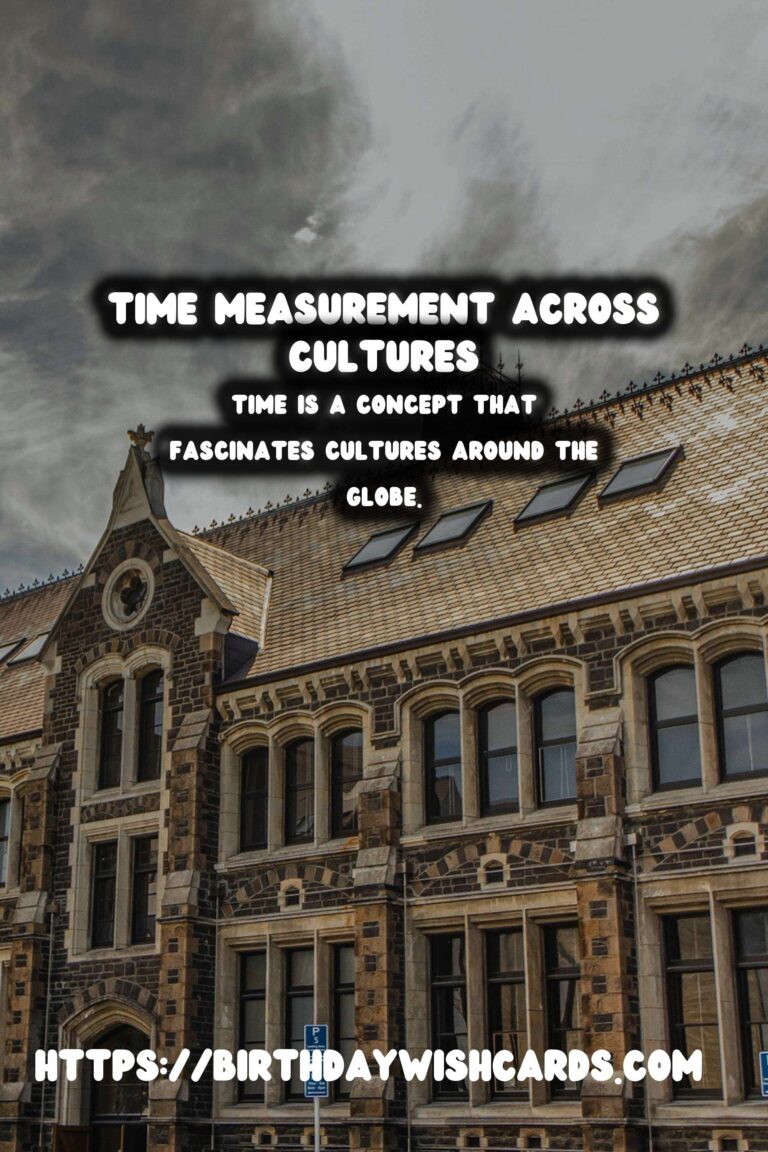
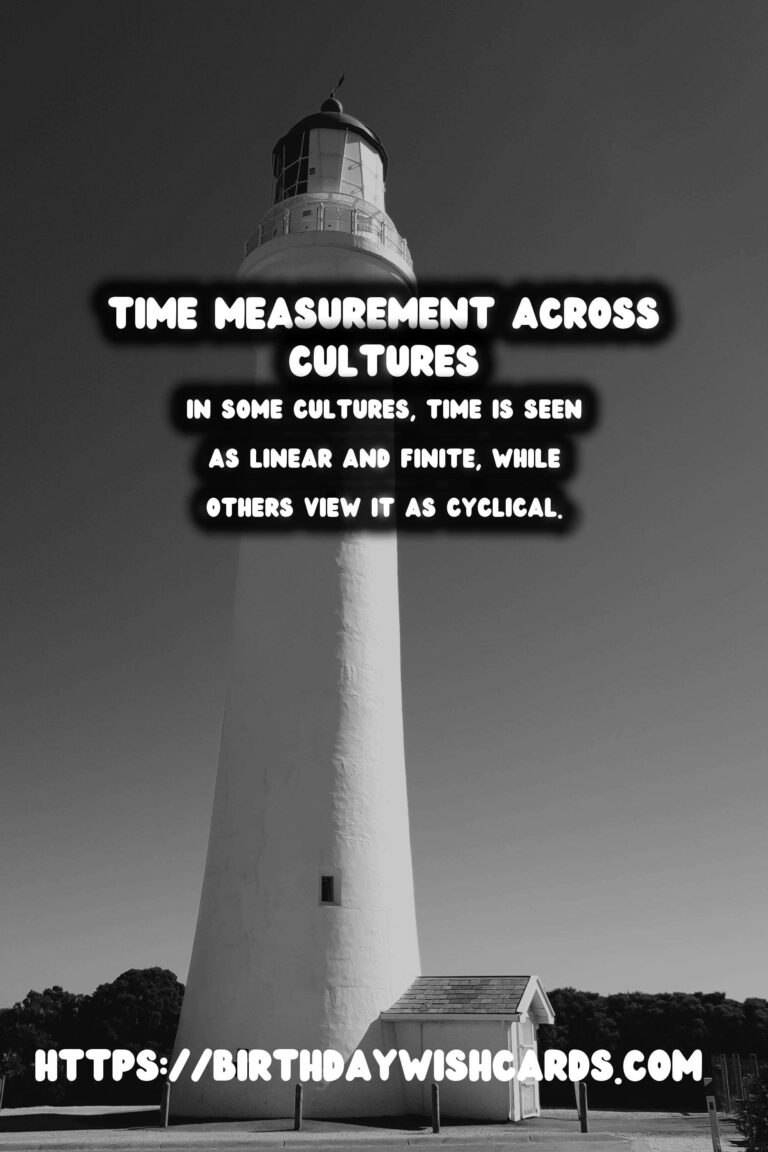
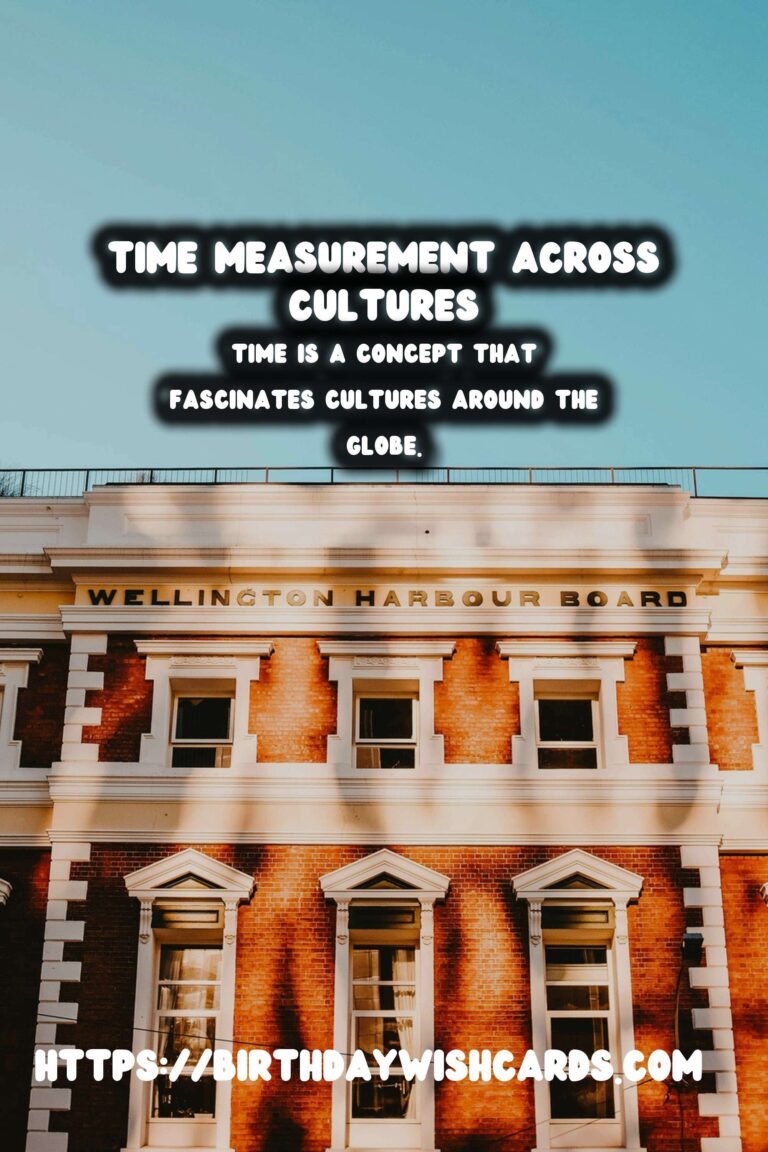
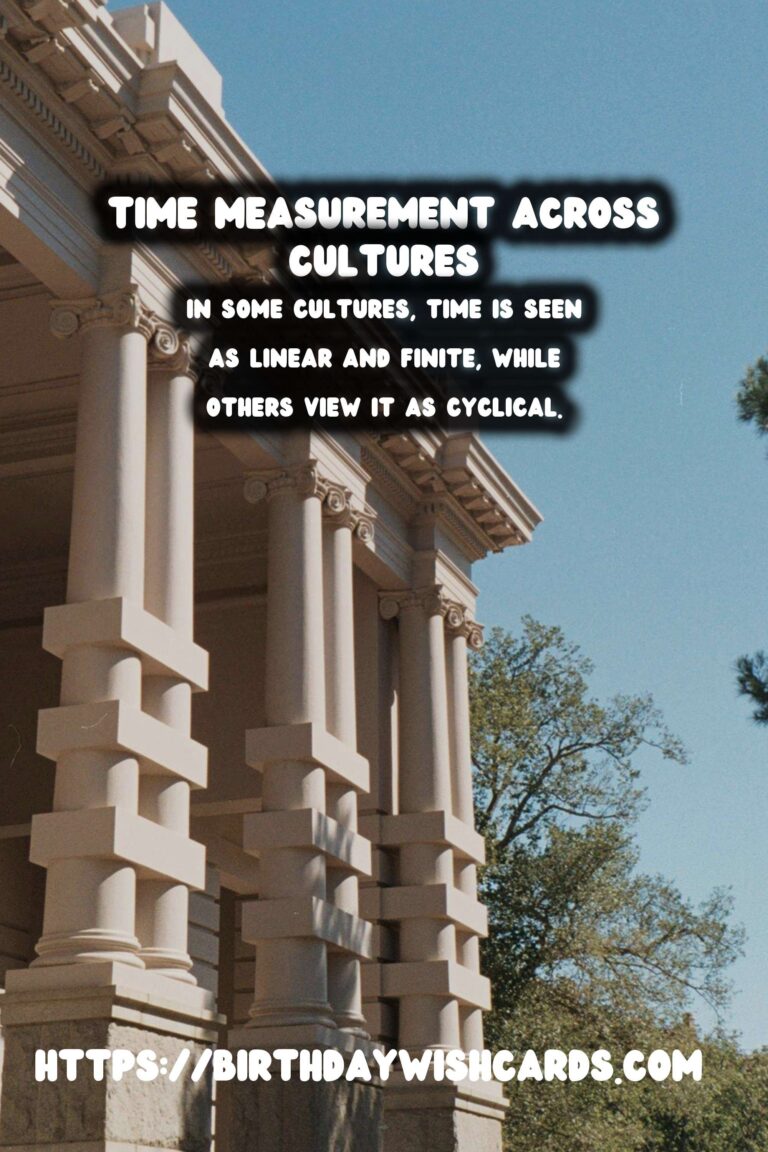
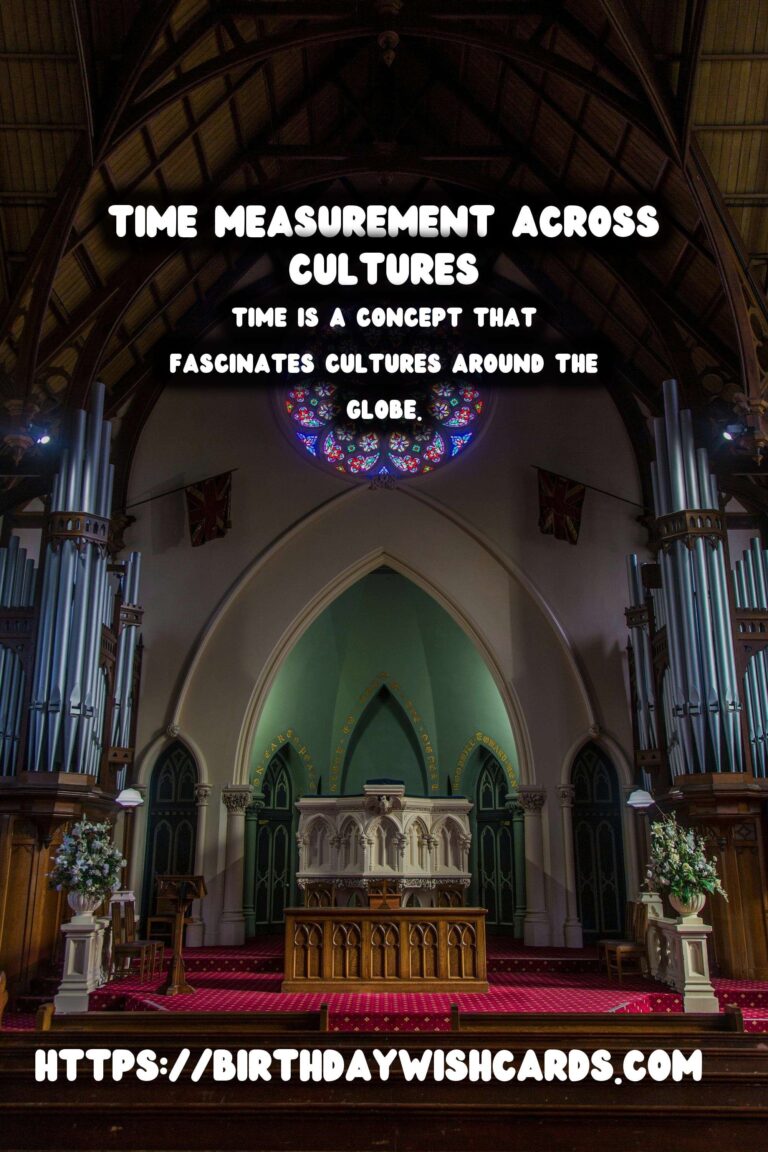
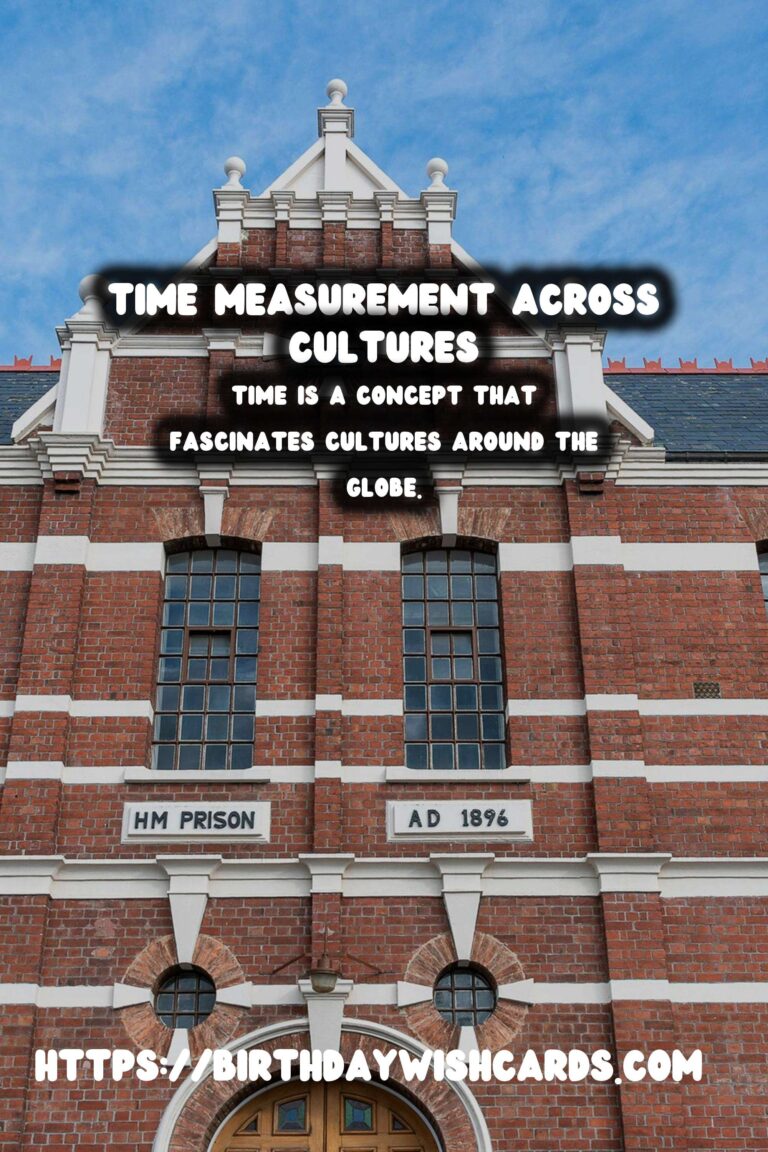
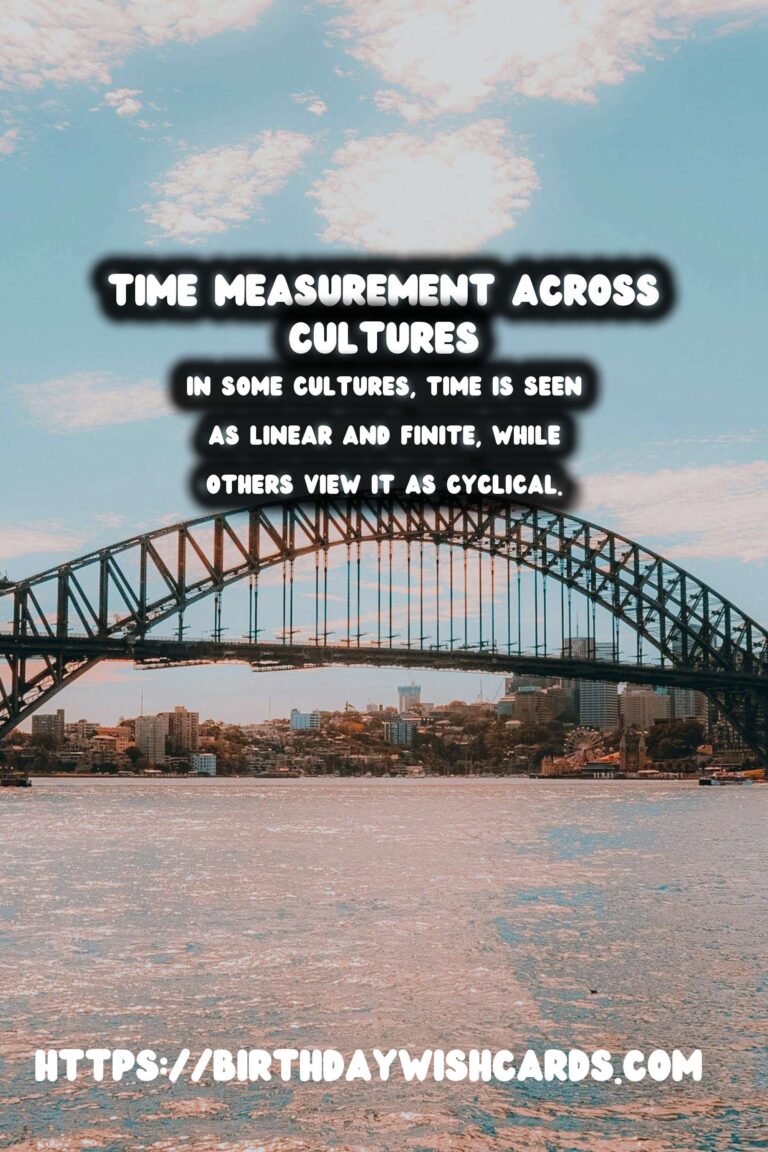
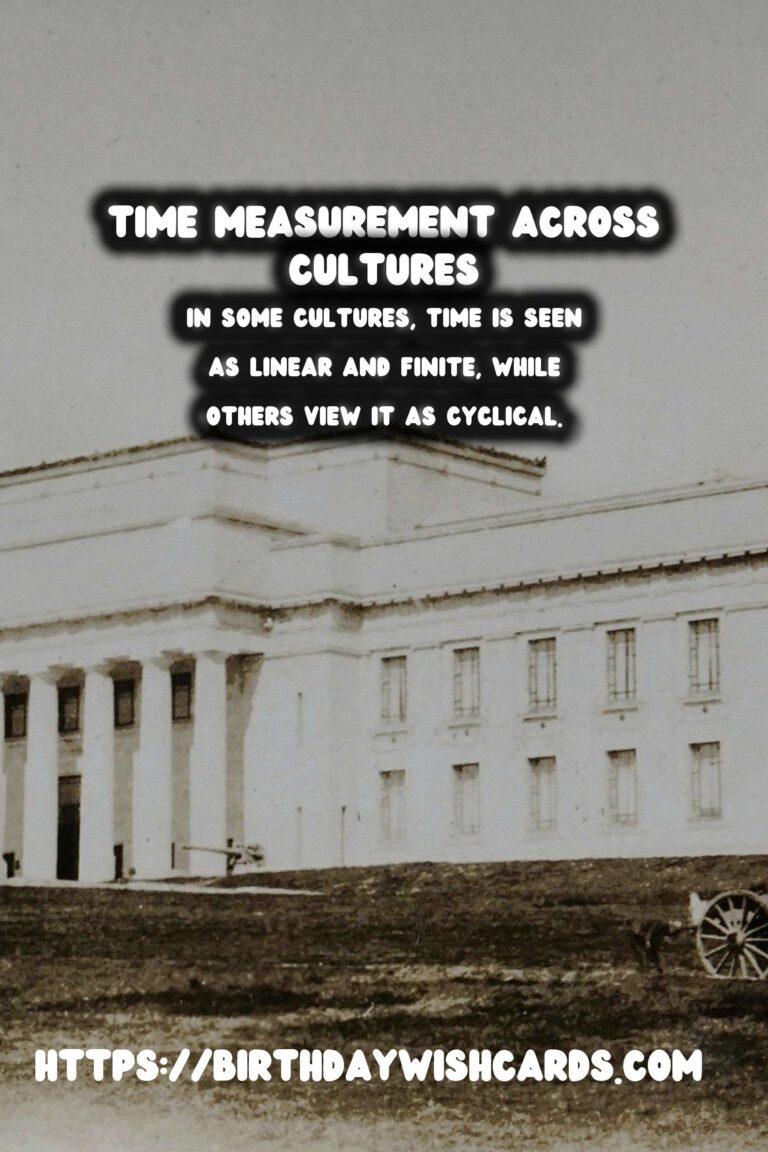
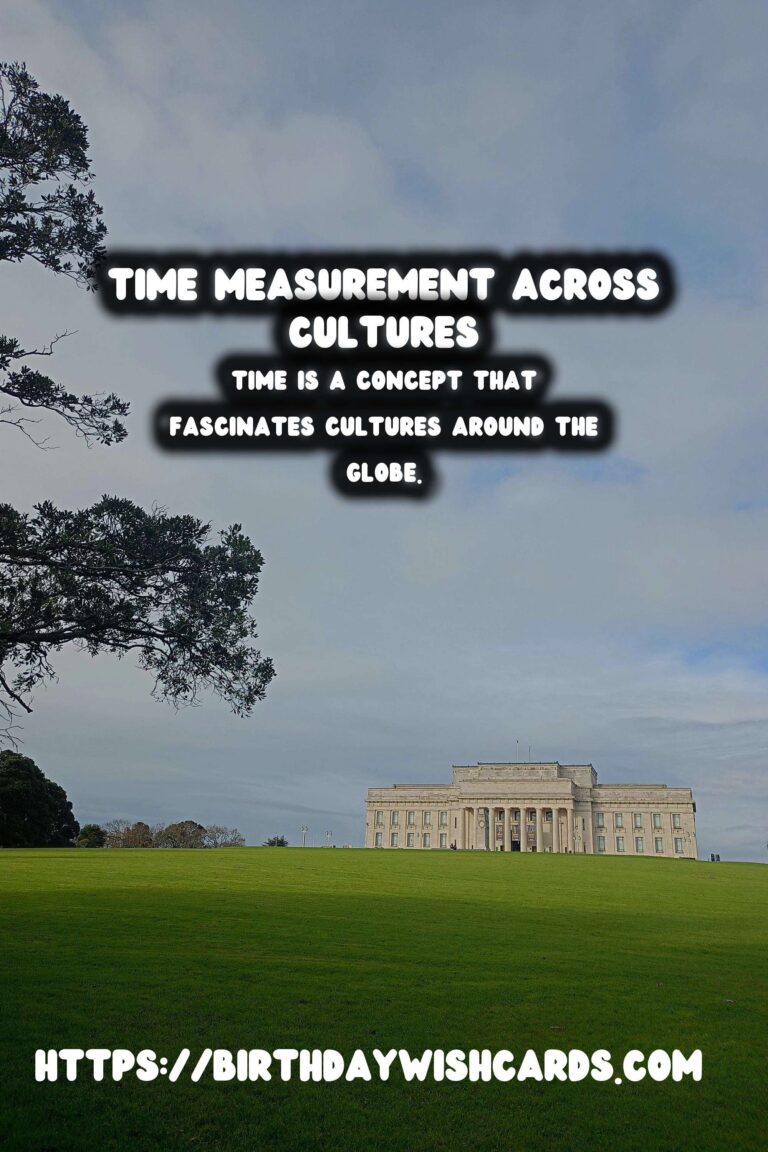
#TimeHistory #CulturalTime




